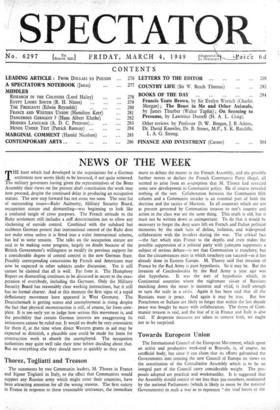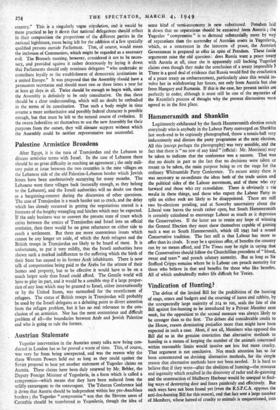Towards European Union The International Council of the European Movement,
which spent an active and productive week-end at Brussels, is, of course, an unofficial body, but since it can claim that its efforts galvanised the Governments into creating the new Council of Europe its views on the constitution of the Consultative Assembly which is to be an integral part of the Council carry considerable weight. The pro- posals adopted are practical and workmanlike. It is suggested that the Assembly should consist of not less than 30o members, nominated by the national Parliaments (which is likely to mean by the national Governments) in such a way as to represent " the vital forces of the
country." This is a singularly vague stipulation, and it would be more practical to lay it down that national delegations should reflect in their composition the proportions of the different parties in the national legislature, room being left for the addition of a few specially qualified persons outside Parliainent. That, of course, would mean the inclusion of Communists, which might be regarded as a necessary evil. The Brussels meeting, however, considered it not to be neces- sary, and provided against it rather dexterously by laying it down that Parliaments should only nominate delegates " who undertake to contribute loyally to the establishment of democratic institutions in a united Europe." It was proposed that the Assembly should have a permanent secretariat and should meet two or three times a year for at least 45 days in all. Twice should be enough to begin with, since the Assembly is definitely to be only consultative. On that there should be a clear understanding, which will no doubt be embodied in the terms of its constitution. That such a body might in time assume a more authoritative and possibly federal character is possible enough, but that must be left to the natural course of evolution. If the sworn federalists set themselves to use the new Assenibly for their purposes from the outset, they will alienate support without which the Assembly could be neither representative nor successful.







































 Previous page
Previous page